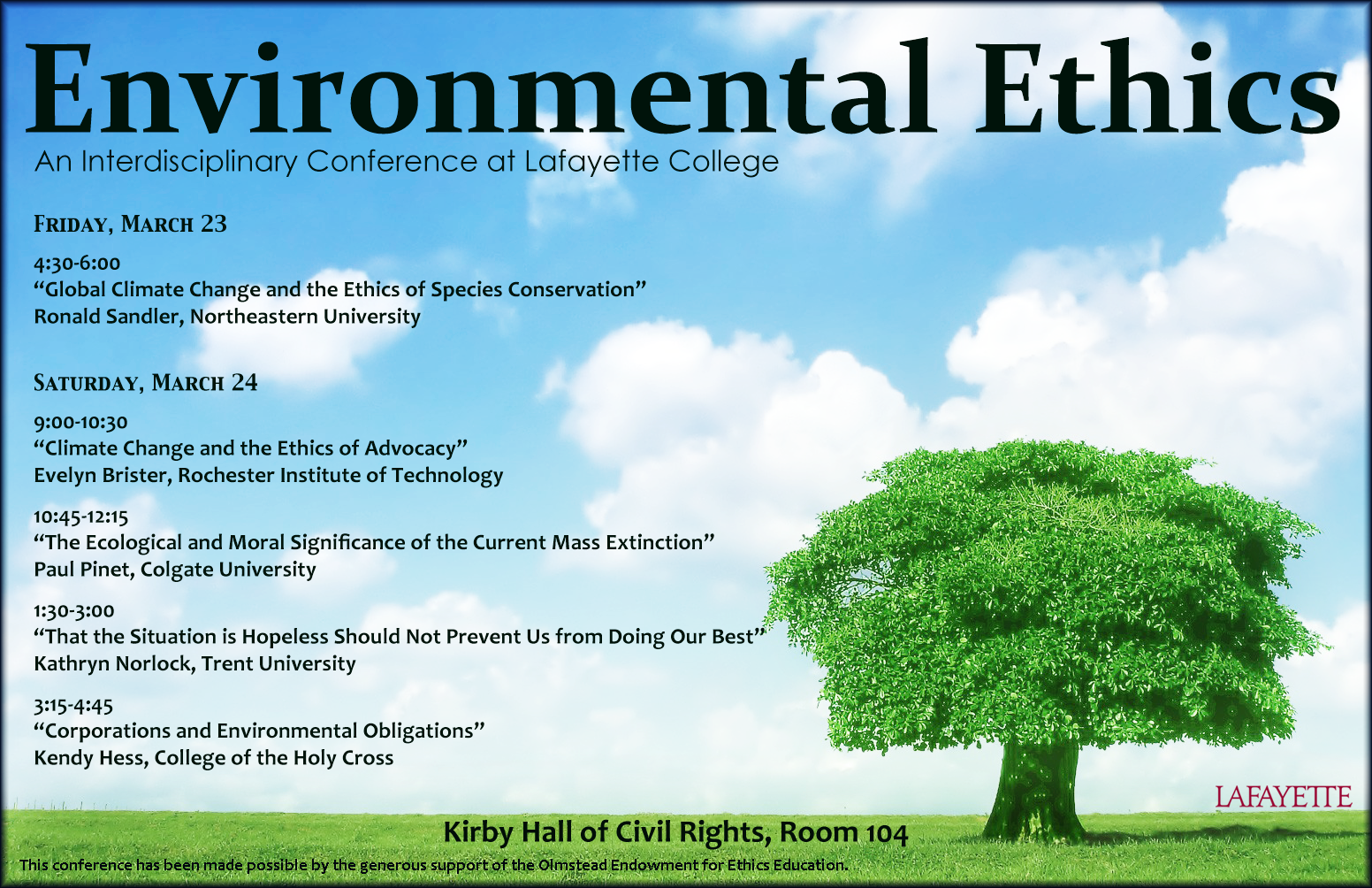Environmental Ethics And Environmental History


Introduction: The Challenge of Environmental Ethics Suppose putting out natural fires, culling feral animals or destroying some individual members of overpopulated indigenous species is necessary for the protection of the integrity of a certain ecosystem. Will these actions be morally permissible or even required? Is it morally acceptable for farmers in non-industrial countries to practise slash and burn techniques here clear areas for agriculture? Consider a mining company which has performed open pit mining in some previously unspoiled area.
Access & Citations
Does the company have a moral obligation to restore the landform and surface ecology? And what is the value of a humanly restored environment compared with the originally natural environment?

If that is wrong, is it simply because a sustainable environment is essential to present and Environmental Ethics And Environmental History human well-being? These are among the questions investigated by environmental ethics. Some of them are specific questions faced by individuals in particular circumstances, while others are more global questions faced by groups and communities. Yet others are more abstract questions concerning the value and moral standing of the natural environment and its non-human components.
The former is the value of things as means to further some other ends, whereas the latter is the value of things as ends in themselves regardless of whether they are also useful as means to other ends.
Item added to basket
For instance, certain fruits have instrumental value for bats who feed on them, since feeding on the fruits is a means to survival for the bats. However, it is not widely agreed that fruits have value as ends in themselves. We can likewise think of a person who teaches others as having instrumental value for those who want to acquire knowledge. Yet, in addition to any such value, it is normally said that a person, as a person, has intrinsic value, i.
What Is Environmental Ethics?
For another example, a certain wild plant may have instrumental value because it provides the ingredients for some medicine or as an aesthetic object for human observers. But if the plant also has some value in itself independently of its prospects for furthering some other ends such as human health, or the pleasure from aesthetic experience, then the plant also has intrinsic value. Many traditional western ethical perspectives, however, are anthropocentric or human-centered in that either they assign intrinsic value to human beings alone i. For example, Aristotle Politics, Read more. Generally, anthropocentric positions find it problematic to articulate what is wrong with the cruel treatment of non-human animals, except to the extent that such treatment may lead to Environmental Ethics And Environmental History consequences for human beings.]

![[BKEYWORD-0-3] Environmental Ethics And Environmental History](http://image.slidesharecdn.com/environmentethics-091205083902-phpapp01/95/environment-ethics-3-728.jpg?cb=1260002418)
Environmental Ethics And Environmental History - perhaps
Definition[ edit ] The term biocentrism encompasses all environmental ethics that "extend the status of moral object from human beings to all living things in nature". It states that nature does not exist simply to be used or consumed by humans, but that humans are simply one species amongst many, [6] and that because we are part of an ecosystem , any actions which negatively affect the living systems of which we are a part adversely affect us as well, [6] [7] whether or not we maintain a biocentric worldview. The four main pillars of a biocentric outlook are: Humans and all other species are members of Earth 's community. All species are part of a system of interdependence. All living organisms pursue their own "good" in their own ways. Human beings are not inherently superior to other living things. Environmental Ethics And Environmental History.
Data And Information On Data
2022-07-03
Daibar
I can recommend to visit to you a site on which there is a lot of information on this question.
xheather360x
2022-07-03
Shakagore
It seems brilliant idea to me is
Realism In Beowulf
2022-07-07
Shaktihn
I can consult you on this question.

Category
Best Posts
- rational choice theory definition sociology
- Importance Of Water Quality
- catching fire theme
- How Did Charlemagne Influence The Renaissance
- the internationalization of amazonia
- custom thesis writing services
- Prohibition In The Great Gatsby
- Analysis Social Innovation In A Digital Context
- marketing mix of federal bank of india
- Military-industrial complex Essays
- The Importance Of The American Space Program
- wgu capstone task 2 powerpoint






 920
920